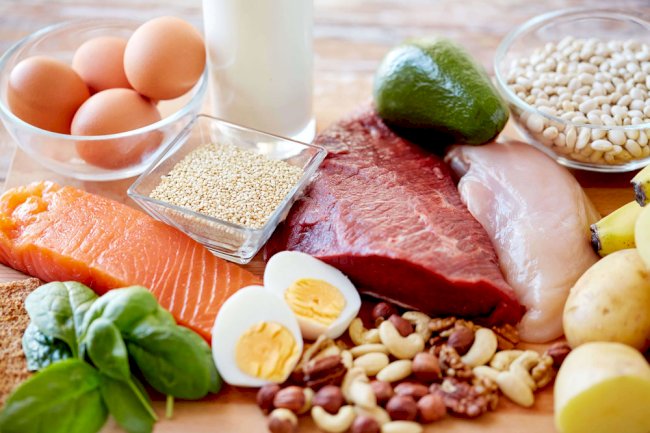Looking To Loose Weight - Eat Fruits
Fruits are a must but less known food item in our diet for a slimmer waist line, here we examine and tell it all.
It’s common knowledge that fruit is one of the staples of a healthy diet. It’s incredibly nutritious and packed with vitamins, minerals, antioxidants and fiber.
Fruit has even been associated with reduced risks of heart disease and diabetes. However, it contains more natural sugars than other whole foods like vegetables. For this reason, many people question whether it’s good for your waistline.
Here we take a look at the potential effects of fruit on weight to determine whether it’s weight loss friendly or fattening.
1. Fruits is High on Nutrients and Low in Calories.
Fruit is a nutrient dense food, meaning it is low in calories but high in nutrients like vitamins, minerals and fiber. One large orange can meet 163% of your daily needs for vitamin C, which is an essential component of immune health. While a medium banana provides 12% of the potassium you need in a day, which helps regulate the activity of your nerves, muscles and heart. Fruits are also high in antioxidants, which help protect the body from oxidative stress and may lower the risk of certain chronic diseases like cancer and diabetes.
What’s more, they also contain fiber, which can promote regularity, improve gut health and increase feelings of fullness. And because fruits are low in calories, including them in your diet may help decrease your daily calorie intake, all while providing essential nutrients.
2. Fruit Intake Is Associated With Weight Loss
Several studies have found an association between fruit intake and weight loss. One massive study followed 133,468 adults over a 24 year span and found that fruit intake was associated with a greater weight loss over time. Apples and berries seemed to have the greatest effect on weight. Another smaller study in 2010 found that obese and overweight dieters who increased their fruit intake experienced greater weight loss.
Fruit is also high in fiber, which has been associated with increased weight loss. Fruit is a staple component of a whole food diet, which has been shown to increase weight loss in its own right.
NB These studies show an association between eating fruit and weight loss, but that does not necessarily mean that one caused the other. Further studies are needed to determine how much of a direct role fruit itself may have on weight loss.
3. Fruit contains Natural Sugars
The natural sugars found in fruit are very different from the added sugars typically used in processed foods. The two types can have very different health effects. Added sugar has been associated with a range of potential health problems, including obesity, diabetes and heart disease. The most common types of added sugar are two simple sugars called glucose and fructose. Sweeteners like table sugar and high fructose corn syrup are a combination of both types.
Fruits contain a mixture of fructose, glucose and sucrose. When eaten in large amounts, fructose can be harmful and may contribute to issues like obesity, liver disease and heart problems. For this reason, many people looking to eat less sugar mistakenly believe that they need to eliminate fruit from their diet.
Additionally, the high fiber and polyphenol content of fruits reduces the rise in blood sugar caused by glucose and sucrose. Therefore, the sugar content of fruit is not an issue for most people when it comes to health or weight loss.
4. Most Fruits Have a Low Glycemic Index
The glycemic index (GI) measures the effects food has on blood sugar levels.
Foods with a lower GI will cause slower blood sugar changes than foods with a high GI. Experts consider foods with a value lower than 55 to be low GI.
Research indicates that a calorie controlled low GI diet may be more effective for weight loss than a high GI diet that is low in fat.
While most fruits have a low GI, tropical fruits, such as pineapple, mango, and watermelon, have a moderate or high GI. However, moderate to high GI fruits can still be a part of a healthy diet.
Now that we've established the fact that fruits play a key role in weight loss, question is:
What Fruits are Most Suitable For Weight Loss?
Apples
One medium apple contains 104 calories and 4.8 grams (g) of fiber. Eating apples daily may aid weight loss. A 2015 study focusing on children and adolescents showed that BMI scores of people who ate whole apples and apple products were lower than those of people who did not consume these foods. The latter group were also more likely to have obesity.
The BMI score is an adjusted score that takes into account a child’s sex and age. It is also known as the BMI standard deviation (s.d.) score.
Bananna
One banana contains 112 calories and 3.3 g of fiber. Bananas are also rich in potassium, which is essential for heart health. Thanks to their sweet taste and high fiber content, bananas may contribute to the feeling of satiety and curb sugar cravings. They are also a highly portable healthy snack, and they are easy to consume on the go.
Berries
Berries are a great option for weight loss, as they have a high water content and the lowest GI (Glycemic Index) of all fruits. Different berries have slightly different nutrient profiles, but they all contain essential vitamins and minerals that support general health.
Oranges
One medium orange contains 72 calories and 3.7 g of fiber. It also contains 81.9 milligrams of vitamin C, which is 109% of the recommended daily allowance (RDA) for a female and 91% for a male.
Fruits to Avoid When Trying to Loose Weight
Avocado
Any high calorie fruit should be consumed less. One of these high calorie fruits is avocado; it is said that 100 gram of this fruit contains about 160 calories. While avocado is a good source of healthy fats, it can up your numbers on the weighing scale easily when consumed beyond reasonable amounts. This doesn't mean you completely eliminate it out of your diet, it is best to eat this fruit in moderation.
Grapes
While they are great for overall health, grapes are loaded with sugar and fats, which makes them the wrong fruit to eat while on a strict weight loss diet. 100 grams of grapes may contain 67 calories, and 16 grams of sugar, which means regular intake of these tiny delights could cause weight gain.
Mango
Tropical fruits like pineapple and mango may have hidden calories that can hinder your weight loss plans. It is best to avoid these fruits that are excessively sweet too.
That being said:
All these fruits are healthy, and at no point should you fear consuming them! But eating them in large quantities could slow down your weight loss journey. It is best to practice portion control and lose weight the healthy way.
Are there any risks associated with a fruit diet? Yes they are, below we take a look.
Risks Associated With a Fruit Diet
Some people follow a fruitarian diet. Most people who eat this way will consume most of their calories from raw fruit, with a small number coming from vegetables, nuts, and seeds. While people on this diet may get many important vitamins and minerals from fruit, they may not get sufficient quantities of other nutrients, such as:
-
Calcium
-
Iron
-
Omega-3 fatty acids
-
Protein
-
Vitamin B12
-
Vitamin D
-
Zinc
Summary
Fruit can be an excellent aid to reaching or maintaining a moderate weight. While all fruits provide health benefits, some may be better than others for contributing to satiety and keeping blood sugar levels stable. If you wish to consume fruit to aid weight loss, then you should do so as part of a balanced diet. Other factors, such as physical activity and adequate sleep, also play a role in weight management and overall health.
What's Your Reaction?























